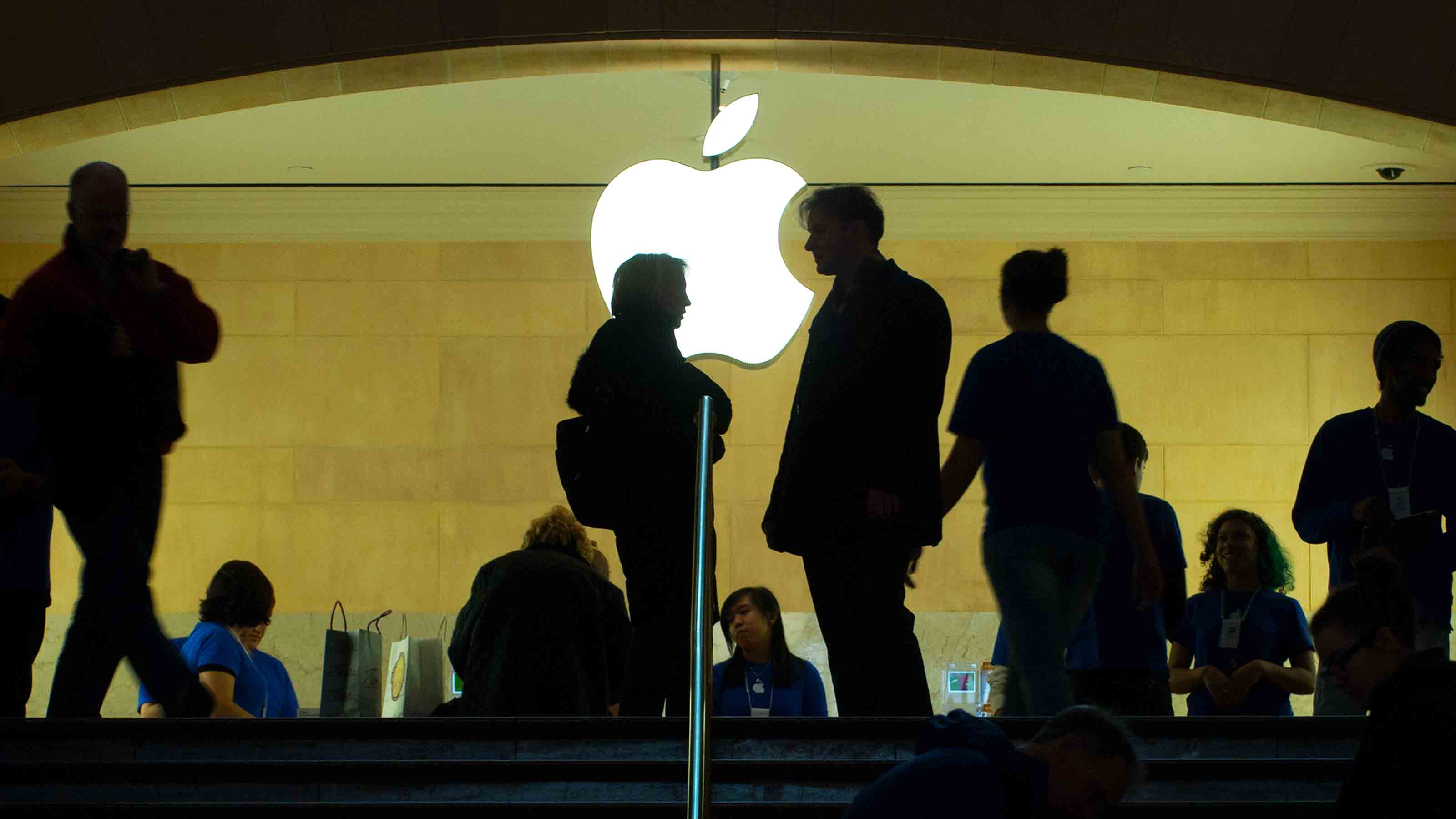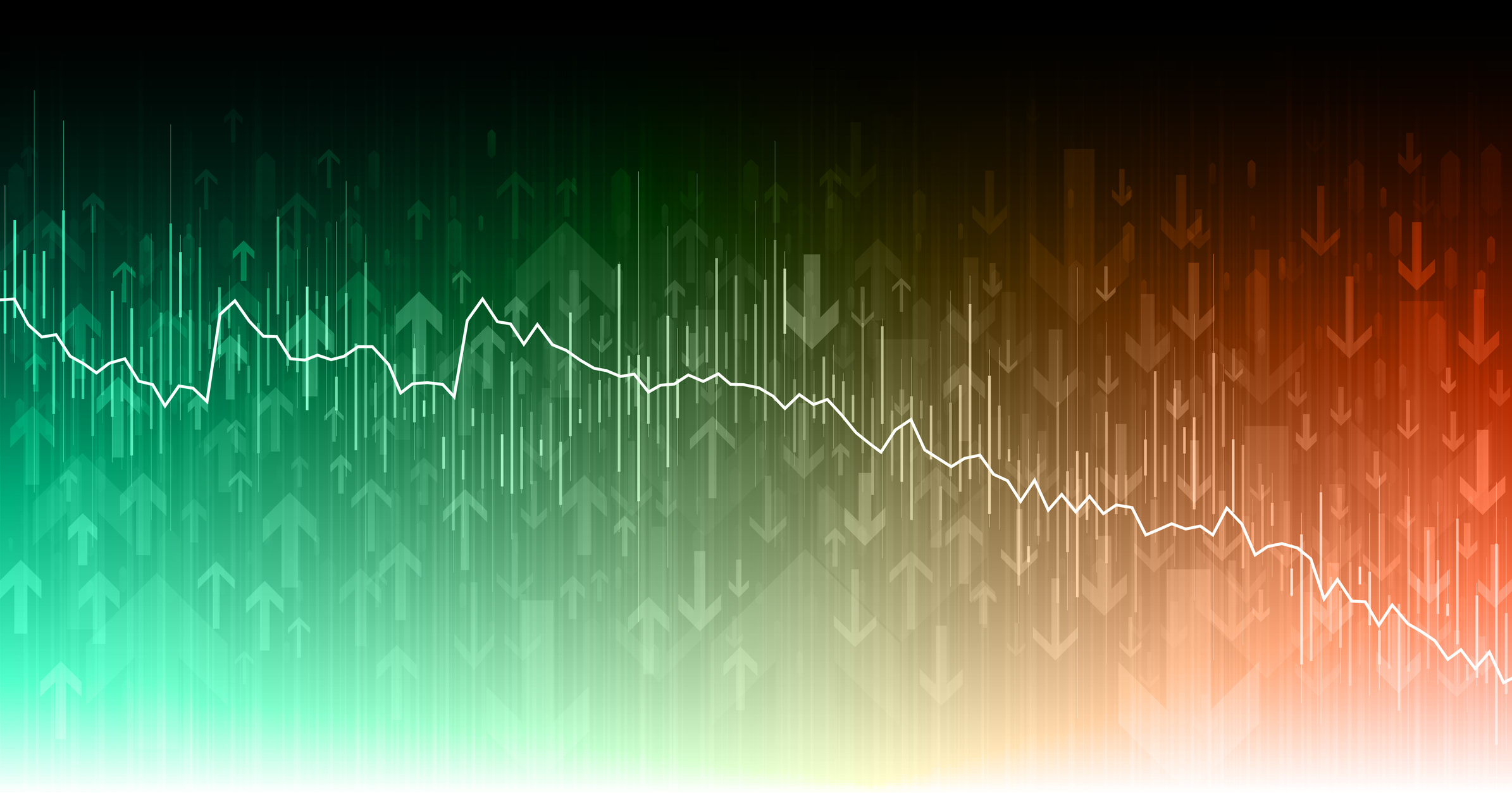Is Apple Stock a Sell Amid China Unrest?
What's in store for Apple stock amid estimates for severe iPhone shortages? Here, we take a closer look.


Profit and prosper with the best of Kiplinger's advice on investing, taxes, retirement, personal finance and much more. Delivered daily. Enter your email in the box and click Sign Me Up.
You are now subscribed
Your newsletter sign-up was successful
Want to add more newsletters?

Delivered daily
Kiplinger Today
Profit and prosper with the best of Kiplinger's advice on investing, taxes, retirement, personal finance and much more delivered daily. Smart money moves start here.

Sent five days a week
Kiplinger A Step Ahead
Get practical help to make better financial decisions in your everyday life, from spending to savings on top deals.

Delivered daily
Kiplinger Closing Bell
Get today's biggest financial and investing headlines delivered to your inbox every day the U.S. stock market is open.

Sent twice a week
Kiplinger Adviser Intel
Financial pros across the country share best practices and fresh tactics to preserve and grow your wealth.

Delivered weekly
Kiplinger Tax Tips
Trim your federal and state tax bills with practical tax-planning and tax-cutting strategies.

Sent twice a week
Kiplinger Retirement Tips
Your twice-a-week guide to planning and enjoying a financially secure and richly rewarding retirement

Sent bimonthly.
Kiplinger Adviser Angle
Insights for advisers, wealth managers and other financial professionals.

Sent twice a week
Kiplinger Investing Weekly
Your twice-a-week roundup of promising stocks, funds, companies and industries you should consider, ones you should avoid, and why.

Sent weekly for six weeks
Kiplinger Invest for Retirement
Your step-by-step six-part series on how to invest for retirement, from devising a successful strategy to exactly which investments to choose.
As we enter the final month of 2022, a year unforgiving to the tech industry, Apple (AAPL, $148.03) stock remains quite volatile.
A big reason is the potential iPhone shortfall resulting from worker unrest at the Foxconn plant in Zhengzhou, China. Employees at the plant where Apple iPhone Pro's are manufactured have been protesting the country's zero-COVID policy.
Sources suggest that unrest at the plant could result in a production shortfall of 6 million units for the iPhone Pro. The protests started in October over food shortages but have recently turned to COVID.
From just $107.88 $24.99 for Kiplinger Personal Finance
Become a smarter, better informed investor. Subscribe from just $107.88 $24.99, plus get up to 4 Special Issues

Sign up for Kiplinger’s Free Newsletters
Profit and prosper with the best of expert advice on investing, taxes, retirement, personal finance and more - straight to your e-mail.
Profit and prosper with the best of expert advice - straight to your e-mail.
While the situation is fluid – Apple and Foxconn believe they can fill the shortfall in 2023 – it could make investors think twice before buying Apple stock.
At the very least, it gives investors food for thought when investing in companies that rely on China for their manufacturing requirements. "It will force Apple to accelerate the diversification of its production base," said Asymmetric Advisors analyst Amir Anvarzadeh, as reported by Bloomberg.
In the long run, this could be the best thing to happen to Apple. However, in the near term, investors ought to temper their expectations for Apple stock as it heads into 2023.
"We estimate that Apple now has significant iPhone shortages that could take off roughly at least 5% of units in the quarter and potentially up to 10% depending on the next few weeks in China around Foxconn production and protests," says Wedbush analyst Daniel Ives.
Ives estimates that the iPhone supply disruptions cost Apple $1 billion per week in lost sales.
On the bright side, the latest information suggests that city officials in Zhengzhou lifted the COVID lockdown on Nov. 30, allowing workers at Foxconn's iPhone City campus to leave the property.
In addition, Foxconn has offered employees who left the plant between Oct. 1 and Nov. 10 bonuses of up to $1,672 if they return to work and remain on the job for at least two months.
It's too early to know what the lifting of these COVID restrictions in Zhengzhou means for Foxconn's plans to entice thousands of workers back to work through monetary rewards.
And investors willing to stand by Apple through its supply issues have other concerns to worry about heading into 2023.
For starters, a significant portion of iPhone owners has likely upgraded their phones in the past two years, resulting in waning demand in the year ahead.
In addition, the company's software and services revenue, according to Oppenheimer analyst Marin Yang, is experiencing a slowdown due to lower consumer spending resulting from higher inflation and interest rates.
Ultimately, Ives believes iPhone 14 shortages could be as much as 30% in Apple stores heading into the holiday shopping season. That's not good news, given consumers have already said they're looking to spend less this year.
Still, Apple stock remains an excellent long-term investment and analysts maintain a consensus Buy rating on the iPhone maker, according to S&P Global Market Intelligence. However, shares could face more near-term volatility.
In the meantime, it makes sense when buying Apple (or any other stock) to tread carefully.
BofA Global Research sees the S&P 500 moving sideways in 2023 due to declining earnings per share. That said, it does project the index will average annual returns of 8% over the next decade.
If you're thinking of buying Apple stock, look past the production problems in China and focus on the long term. That's what Warren Buffett's doing (Apple, for those who don't know, is the top holding in the Berkshire Hathaway equity portfolio).
Profit and prosper with the best of Kiplinger's advice on investing, taxes, retirement, personal finance and much more. Delivered daily. Enter your email in the box and click Sign Me Up.

Will has written professionally for investment and finance publications in both the U.S. and Canada since 2004. A native of Toronto, Canada, his sole objective is to help people become better and more informed investors. Fascinated by how companies make money, he's a keen student of business history. Married and now living in Halifax, Nova Scotia, he's also got an interest in equity and debt crowdfunding.
-
 Dow Adds 1,206 Points to Top 50,000: Stock Market Today
Dow Adds 1,206 Points to Top 50,000: Stock Market TodayThe S&P 500 and Nasdaq also had strong finishes to a volatile week, with beaten-down tech stocks outperforming.
-
 Ask the Tax Editor: Federal Income Tax Deductions
Ask the Tax Editor: Federal Income Tax DeductionsAsk the Editor In this week's Ask the Editor Q&A, Joy Taylor answers questions on federal income tax deductions
-
 States With No-Fault Car Insurance Laws (and How No-Fault Car Insurance Works)
States With No-Fault Car Insurance Laws (and How No-Fault Car Insurance Works)A breakdown of the confusing rules around no-fault car insurance in every state where it exists.
-
 Nasdaq Slides 1.4% on Big Tech Questions: Stock Market Today
Nasdaq Slides 1.4% on Big Tech Questions: Stock Market TodayPalantir Technologies proves at least one publicly traded company can spend a lot of money on AI and make a lot of money on AI.
-
 Stocks Close Down as Gold, Silver Spiral: Stock Market Today
Stocks Close Down as Gold, Silver Spiral: Stock Market TodayA "long-overdue correction" temporarily halted a massive rally in gold and silver, while the Dow took a hit from negative reactions to blue-chip earnings.
-
 S&P 500 Hits New High Before Big Tech Earnings, Fed: Stock Market Today
S&P 500 Hits New High Before Big Tech Earnings, Fed: Stock Market TodayThe tech-heavy Nasdaq also shone in Tuesday's session, while UnitedHealth dragged on the blue-chip Dow Jones Industrial Average.
-
 Dow Rises 313 Points to Begin a Big Week: Stock Market Today
Dow Rises 313 Points to Begin a Big Week: Stock Market TodayThe S&P 500 is within 50 points of crossing 7,000 for the first time, and Papa Dow is lurking just below its own new all-time high.
-
 Nasdaq Leads Ahead of Big Tech Earnings: Stock Market Today
Nasdaq Leads Ahead of Big Tech Earnings: Stock Market TodayPresident Donald Trump is making markets move based on personal and political as well as financial and economic priorities.
-
 11 Stock Picks Beyond the Magnificent 7
11 Stock Picks Beyond the Magnificent 7With my Mag-7-Plus strategy, you can own the mega caps individually or in ETFs and add in some smaller tech stocks to benefit from AI and other innovations.
-
 Dow Dives 870 Points on Overseas Affairs: Stock Market Today
Dow Dives 870 Points on Overseas Affairs: Stock Market TodayFiscal policy in the Far East and foreign policy in the near west send markets all over the world into a selling frenzy.
-
 Small Caps Can Only Lead Stocks So High: Stock Market Today
Small Caps Can Only Lead Stocks So High: Stock Market TodayThe main U.S. equity indexes were down for the week, but small-cap stocks look as healthy as they ever have.